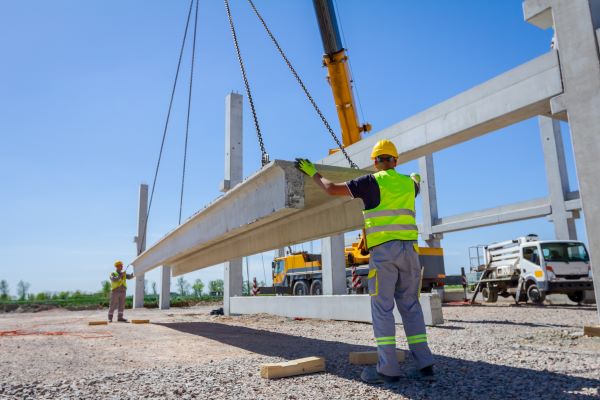How To Get Rigger Certification

Though they might not be as well-known to the broader public as other construction jobs like heavy equipment operator and foreman, riggers are vital workers on any worksite. Riggers play a critical role in ensuring the safe and stable movement of both heavy equipment and materials on construction sites, industrial facilities, and any other environment where heavy lifting is required, like cargo terminals. Riggers are a highly in-demand position on worksites, and getting your rigger certification is an important step in starting a new career.
In this blog post, we’ll look at what riggers do, what skills you need to be a rigger, and what professional certifications you will need to have to start working as a rigger—and how you can get certified as a rigger.
What Do Riggers Do?
Riggers can trace the origin of their work back to the age of early seafaring when certain sailors specialized in working the rigging. That is, the complex latticework of ropes that ensures the ship’s sails function properly. Over time, anyone who worked on the rigging or worked with ropes came to be called a rigger. One of the most important tasks riggers took on was loading cargo onto the ship, and in a time before cranes and forklifts, that usually meant hauling things manually with ropes and pulleys.
On modern jobsites, a rigger is someone who has been “trained and certified to handle and move loads,” according to the standards set by the National Commission for the Certification of Crane Operators (NCCCO). While that description might seem broad and could refer to just about anyone, riggers are generally the workers whose job it is to attach loads to cranes, winches, and hoists to ensure safe, balanced operation. A rigger can sometimes also be the one who operates the crane itself, but in general, the rigger and the crane operator often tend to be separate people.
What Skills Do Riggers Need?
Being a good rigger takes a certain skillset:
- Math skills to be able to accurately assess loads
- Knowledge of basic physics to understand how loads may move and shift in transit and prepare them properly
- The ability to inspect rigging, identify parts, and attach them with “basic knowledge of hitch configurations, capacities, and basic knots”
- The ability to properly identify hazards in the area of operation
- If a separate worker from the crane operator, the ability to properly signal and communicate with the operator as they begin the lift
How Can You Get Your Rigger Certification?
Technically, you don’t need any training at all to become a rigger. You can simply go to an NCCCO-approved site and pass both the written and practical tests. However, doing so without any training is a great way to fail on the spot. Lack of proper training could also lead to dangerous situations on the jobsite.
Therefore, if you’re looking to get your rigger certification and work safely and effectively, it’s a good idea to look for education from experienced and trained professionals. Work with a company that has a history of helping aspiring workers understand their job requirements and pass both written and practical tests.
West Coast Training has proven successful in helping teach aspiring riggers and crane operators how to get their NCCCO certification and how to find work with it afterward. If you’re interested in getting your NCCCO rigging certification, contact West Coast Training today.
